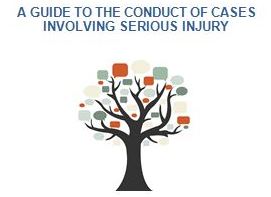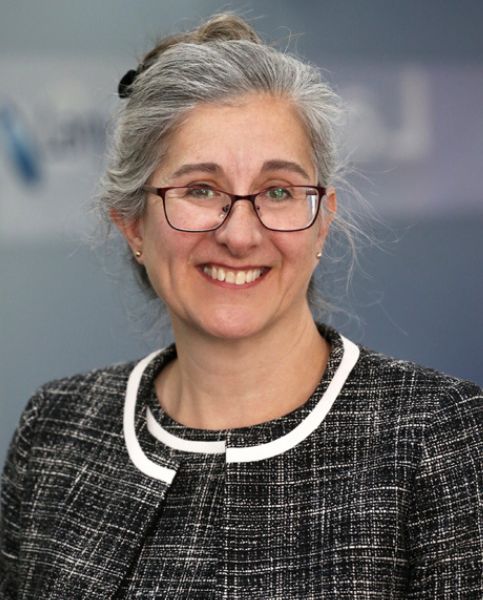I was delighted to have the opportunity to attend the Serious Injury Guide stakeholder workshop following Lanyon Bowdler’s signatory to the same.
The Serious Injury Guide is a best practice guide designed to assist litigants conducting personal injury cases. It particularly applies to complex injury cases where the potential value of the claim is over £250,000 and is likely to involve a claim with an element of future continuing loss.
The attention is to help parties resolve issues whilst putting the claimant at the centre of the process. It aims to meet the reasonable needs of an injured claimant and helps the parties to work together, to resolve the case by co-operation and narrowing the issues.
The Main Objectives of the Guide are to:
- Resolve liability as quickly as possible
- Provide the claimant with early access to rehabilitation to maximise their recovery
- Resolve costs in an appropriate and proportionate manner
- Resolve the whole claim within an appropriate agreed time frame and;
- Encourage an environment of mutual trust, transparency and collaboration
Claimants are encouraged to give early notification within 14 days of the claim to the defendant and their insurers, particularly where liability can be conceded.
Interestingly, a full formal letter of claim is not expected in the first instance; just an initial view for the purposes of understanding the nature of the claim, the severity of the injuries and to ensure that the case is allocated to the appropriate level of file handler.
Having made first contact the defendants should acknowledge a notification letter. Then within 28 days there is encouragement for the insurer to contact the solicitors. It is important to establish lines of communication and to consider the following:
- Liability
- Update on injuries
- Rehabilitation
- Potential defendants and;
- Agreement as to when further discussions will be held
What helps Efficient Case Progression?
Case planning or pathway meetings enable there to be constructive collaboration and dialogue, which allows efficient case progression with an agreed action plan. It not only looks at liability issues, but also focuses on rehabilitation quantum evidence and overall settlement. Where possible, a longstop date for a joint settlement meeting is provided.
In terms of liability, there is a commitment for the defendant to finalise liability investigations within a maximum of six months from the date of first notification. It is not possible to identify barriers that stop liability and see whether those issues can be resolved at an early time, or to look at alternative dispute resolution or mediation in place of a trial. There is a commitment to obtaining an early interim payment of both payments on account for the claimant, and payment of disbursements in addition to base costs relating to liability once resolved. This helps clients in commercially funding their claims, which in complex cases can take a considerable time to settle.
In my experience, obtaining early rehabilitation for clients is effective by the appointment of an independent clinical case manager who can assist with the client’s needs. This coupled with a willingness to make early and continuing interim payments, help put the claimant in a better position in terms of their rehabilitation.

There is commitment by both parties to obtain and disclose liability reports, police reports and accident report documents. On the cases that I have dealt with, we have arranged for there to be ongoing, rolling disclosure of medical notes, records and documents relating to past loss. Case management and treatment records should also be included to provide the defendants with the possibility of reviewing the claim in early course - even if medical reports have not yet been obtained. Collaboration and case planning, early interim payments, maximising rehabilitation, identifying early issues of dispute and providing a flexible approach to resolution, avoid the need for a contentious background to litigation. What’s more, regular updates between the parties and increased communication are key.
If there are multiple defendants, the identity of a co-ordinating party will try to avoid the duplication of correspondence. There is also a continued expectation that the defendants will agree to a co-ordinating defendant as soon as possible. For me, it is most important that regular ongoing dialogue takes place between the parties, until the next stage required in the case. Any material change of circumstances should be notified immediately e.g. loss of capacity, significant material deterioration, change in care regime costs and risk of loss of employment.
Early Rehabilitation
For the claimant, the most important point (and the overriding aim of the guide) is to have access to early rehabilitation at the earliest practical possibility. It also includes a consultation with the claimant, the claimant’s family and looking for early intervention, rehab or medical treatment that would improve the present or long term situation. The defendants should reply promptly to any request for rehabilitation within 21 days. If either party feels that the opposing handler is not acting in accordance with the spirit of the guide, the first step must be to exhaust attempts to resolve points of concern. Alternatively, there is an escalation procedure and parties are expected to adhere to the objectives.
Ongoing dialogue is fundamental to the process and the guide covers early neutral evaluation, joint settlement meetings, mediation, arbitration or a stocktake/cooling off period, before the parties re-engage. On a commercial basis the offer of rolling costs, payment of disbursements and full interim payments assist all parties in terms of providing better service - all of which help to make the litigation process a much easier experience. For more information about the guide, please click here.
Lanyon Bowlder are one of Shropshire & Herefordshire's Leading Serious Injury Claim Solicitors Firms, If you or a loved one have been injured, talk to our team today.
"*" indicates required fields

 Back
Back
















